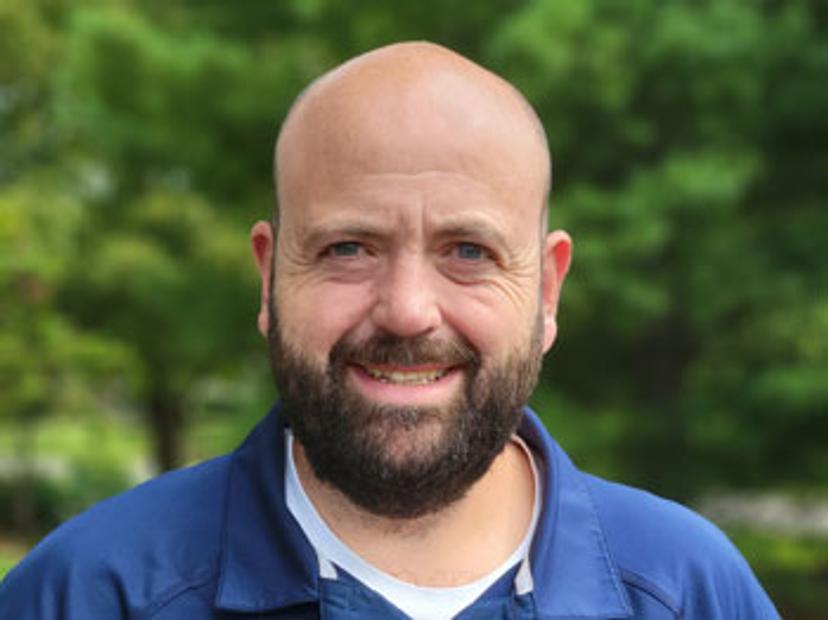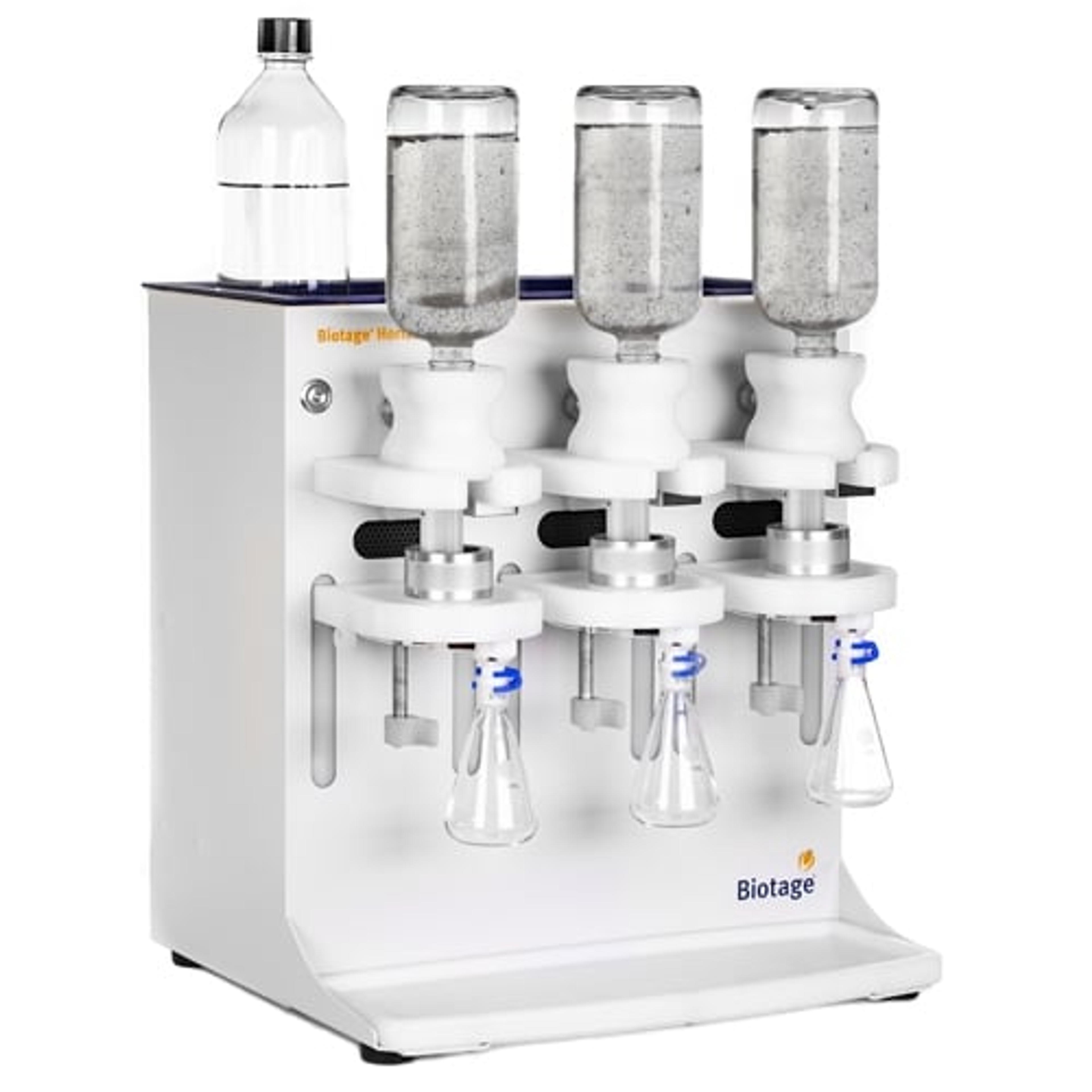How solid-phase extraction is transforming environmental analytical testing
In this interview, we explore a first-hand experience of the time and cost-saving advantages of SPE as a sample preparation technique
7 Sept 2021

A solid-phase extraction (SPE) workflow has the potential to save on time and costs while providing consistent and precise results, even for challenging samples. Isaak Murshak, Business Director at Merit Laboratories, shares how his environmental analytical laboratory capitalizes on the benefits of SPE to ensure it is achieving its goal of accurate analyses and specialty testing, with a specific focus on customer service.
SS: How does Merit Labs help customers achieve their goals?
IM: We are an independent analytical chemistry laboratory providing testing services in the environmental and consumer space. The analytical services industry has evolved from a space occupied by small laboratories to one with big multinational companies. In this crowded sector today, we separate ourselves from the rest of the market with our commitment to customer service and high-quality analytical results.
SS: Why is a good quality sample preparation technique so important to your clients?
IM: Even with the most sensitive instrumentation, without the correct sample preparation, a scientist cannot be sure of extracting the analyte of interest. Any misstep up to the actual run of the sample on an instrument, for example, a mass spectrometer, still results in an error in the experiment. Sample prep is as key to achieving the desired results as analytical setup and correct use of the instrument, if not more.
SS: What types of water samples do you test in your laboratory?
IM: We run tests on different liquid samples in our laboratory, ranging from groundwater and drinking water to wastewater. We also test industrial liquid waste based on the instrument and application we choose.
SS: What are some of the benefits of using SPE vs. liquid-liquid extraction for your sample preparation?
IM: There are two striking benefits to using SPE that we have observed so far. First, we end up saving in terms of the manual labor and time involved because of the high consistency in the SPE sample workflow. Once our sample preparation chemist does the basic setup of the samples, they can move on and focus on other tasks. This frees up their time spent on the experiment while also reducing the chances of manual errors due to the limited user time involved.
Second, we also see cost savings on the limited solvent usage required for SPE versus liquid-liquid extraction.
At Merit, we added SPE into our offering to test it out on oil and grease samples, alongside some industrial waste samples. Our chemist ended up developing a protocol using SPE that produced great results for us. Now, as we save on time and costs, we get more consistent recoveries from SPE than from some of the liquid-liquid extractions.
SS: How does the Biotage® Horizon 5000 help overcome the challenges you are currently facing?
IM: We use the Biotage Horizon 5000 mainly for our toxicity characteristic leaching procedure (TCLP) analyses, as well as oil and grease sample analyses. For certain waste types, the US Environmental Protection Agency requires a TCLP analysis to be conducted to trace the organic and inorganic compounds they contain. It essentially involves waste analysis and characterization. Over the years, we have noticed some ‘problem compounds’ that are hard to extract in liquid-liquid extraction. We get much better recoveries and analytical results for these through SPE systems, which is why we use the Horizon 5000’s SPE methodology to conduct our TCLP analysis.
For our oil and grease samples, the main benefit of using the 5000 is that the instrument is automated and largely hands-off: it saves on wasting our chemists’ time. The Horizon 5000 facilitates troubleshooting and replicating developed protocols, cutting down on the time spent on optimizing parameters, allowing our chemists to focus on other key issues.
As you can see, we have developed our sample preparation method to use the 5000 on samples that would not purely be considered drinking water or wastewater and it is able to provide us with far superior results than other applications because of the ease with which it can break down the compounds.
SS: What are the key standout features of the Biotage Horizon 5000?
IM: One huge advantage with the Horizon 5000 is that it takes into account the fact that environmental samples tend to contain a large number of particulates. This may sound minor, but it is highly beneficial because most other SPE systems assume that all samples are equivalent to crystal-clean drinking water. And in the environmental industry, that is rare to find unless you are literally a drinking water-only lab.
The Horizon 5000 system also has built-in safety nets to protect the sample and ensure a good run — that automatically enables all environmental labs to use this system. The system also functions in such a way that it doesn't require positive pressure on the solvents themselves, which is another advantage.
The manufacturer of the Horizon 5000, Biotage, is committed to improving its systems over time, based on user feedback. In its new systems, each sample entry point has its own pump, which is helpful for us: when an issue arises, the whole system doesn't shut down, it is just one part of it that is affected. This is a key improved feature, which our chemists like a lot.
SS: What impact do you hope your work will have in the future?
IM: As an analytical chemistry lab, we set ourselves apart with our staff who are all amazing chemists, committed to getting accurate analytical results. There is a culture of excellence we follow, and I am hopeful that we can maintain that going forward. This is especially important because there has been heavy consolidation coupled with constant disruption in the analytical industry. We have been lucky enough to largely avoid that at Merit, while delivering on the excellence that our customers have grown to expect from us.

